(This is a slightly longer post because I want to cover a number of important issues the Foundation is trying to address in 2018 – Jacinta)
In late 2017 the Foundation decided to spread its efforts into the highland district of Nuwara Eliya, one of the largest tea growing regions in Sri Lanka. Few people outside of Sri Lanka are aware that the tea plantation workers are the most marginalised communities in Sri Lanka as a result of 200 years of exploitation by the plantation industry.
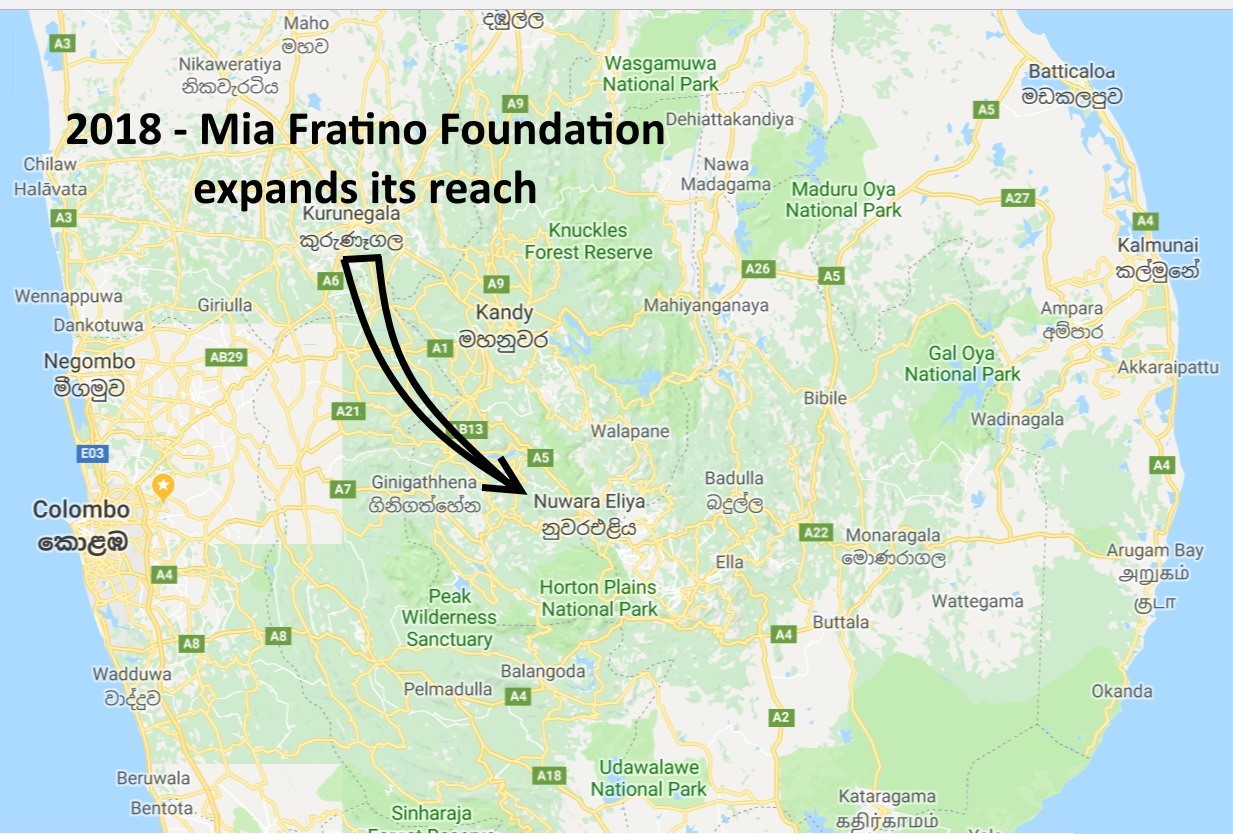
There are some people who try to rationalise the situation, but the poor living conditions today in many tea plantations have created a dramatic gap between the health and education outcomes of a plantation worker vs that of an urban Sri Lankan.
You can see below that tea plantation babies have almost 300% higher death rates than city children and almost 200% higher rate of malnutrition. Added to this is the plantation child is 300% more likely to have stunted growth/height than a city child.
| HEALTH BENCHMARK | URBAN WORKER | RURAL WORKER | TEA ESTATE WORKER |
| BIRTH WEIGHT <2.5KG | 12.8 | 16.4 | 31.0 |
| INFANT MORTALITY RATE PER 1000 | 10 | 19 | 29 |
| UNDER 5 Y/O MORTALITY RATE | 19 | 23 | 33 |
| STUNTED HEIGHT RATE% | 13.8 | 16.2 | 40.2 |
| WEIGHT FOR AGE – MALNORISHMENT | 16.5 | 21.2 | 30.1 |
| EDUCATION LEVEL – GRADE 1-5 | 95.9 | 95.3 | 93.1 |
| GRADE 6-9 | 92.3 | 99.3 | 83.5 |
| GRADE 10-11 | 86.2 | 81.4 | 53.8 |
| GRADES 12-13 | 45.8 | 39.7 | 12.8 |
Source: UPR 2017 Sri Lanka Malayaha Tamilar Rights Coalition” (SLMTRC)
When it comes to education success, it is very apparent that children are not staying in school beyond grade 9, and rarely reach the final years of graduation.
It is probably best for a little history lesson on how tea growing became one of Sri Lanka’s important exports, but it has been at the expense of imported labourers from South India, mainly of Tamil heritage.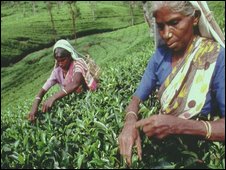
When the British took control of Sri Lanka from the Dutch, large-scale tea cultivation commenced in the 1860s. The British plantation owners had difficulty in recruiting local people to undertake because the low pay and conditions were not enough for the locals to give up their paddy fields and also lose their social status doing unskilled manual labour. At this time there was a famine in South India in the Tamil districts and recruiters were able to attract people with promises of good conditions and a better future. These eager Indian recruits became known as ‘coolies’. Women were especially recruited, not only for their low wage expectations, but to also provide the opportunity to breed a new generation of plantation workers.
Therefore the tea estates were worked by imported labour and controlled by an Indian village style patriarchal hierarchy whereby a head man would set the production output an each level below would enforce it to the level below. Unfortunately, women held the lowest position and became the majority of tea pickers, whilst men exclusively held the management roles. We need to understand that this patriarchal structure subordinated all female roles to the male – wife to husband, sister to brother, mother to son etc.
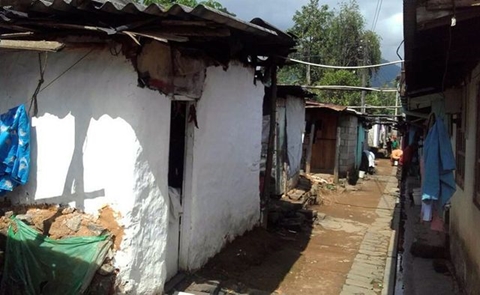
The Plantation owners housed people in ‘line homes’ which were just one room measuring approximately 3 metres x 4 metres and would house 8-10 people. Here they slept, ate and performed all life activities without any privacy. In the beginning men and women shared a room and resulted in terrible exploitation of vulnerable single girls.
Today, 90% of all plantation children are descendants of these original coolies, and line houses are still in use on plantations today.
If you would like to read a more detailed history, follow this link http://www.dailymirror.lk/89339/child-labour-in-the-tea-plantations-in-sri-lanka
Today the worker conditions are now under pressure with new ‘profit sharing contracts’. Historically the plantation were required to pay the workers a daily wage, but now the new ‘contracts’ are really just a way for companies to contract out work and not have to pay the set daily minimum wage. As one worker reported to a local newspaper – On other days, she explained that workers can be paid 730 rupees ($4.77) per day but only if they harvest 18 kilos of tea leaves per day. “If we don’t pluck this amount then we are not paid the 140-rupee per day productivity allowance. In the dry season it’s difficult to reach this target.”
I find it hard to understand how anyone can pluck 18kgs of tea leave buds from scrubs every day just to earn $5.
You may be thinking why dont people just leave the plantation, but it is a textbook example of the Poverty Trap. Men and women with little education and no life savings are surviving by living in company rooms. Therefore, although the conditions are of a poor standard, they cannot see how they could start again outside the plantation, and so they accept this vicious cycle. For the household to earn a living wage, they need to get their children into work as soon as possible so that they can earn enough to survive. Therefore the children are taken out of school and also drawn into the poverty trap in their teenage years.
For the Mia Fratino Foundation, to make a difference in the Nuwara Eliya region is an important priority in 2018.
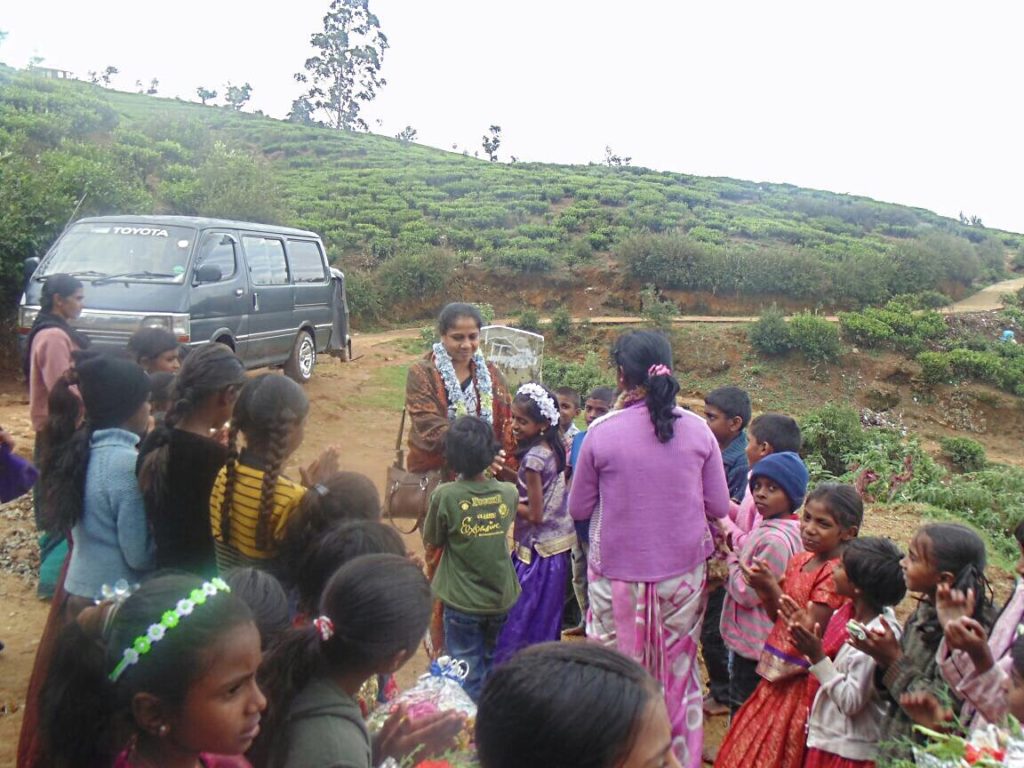
Our programme Co-ordinator Manori has lived in the Nuwara Eliya region for many years and knows first hand the impact the Foundation can make to women. Manori has been with us from the early days of our Kurunegala project, as we rolled out microfinance programmes across a number of women’s groups. She is a diligent supporter of the Foundation and knows how important it is to encourage and assist participants to dream a brighter future.
One of our first projects was to organise new schoolbags for the children so that the local women and children see that the Foundation believes that education is important.
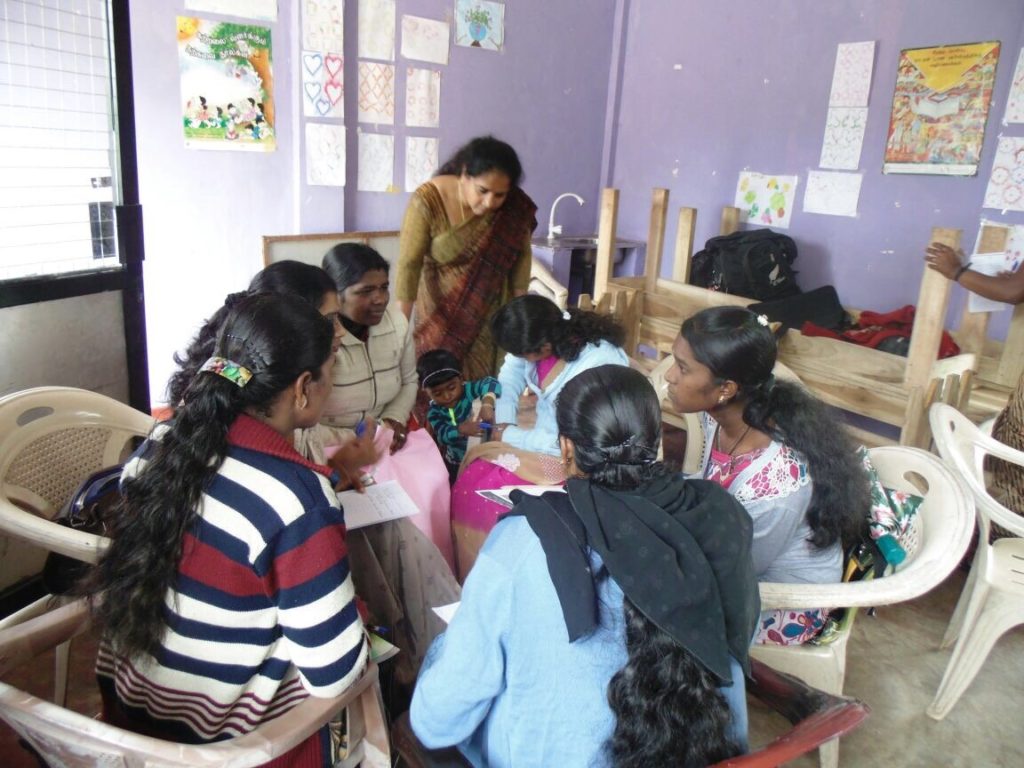
In February 2018 national elections were called and interestingly we have been required to cease activity until the elections are over on the 10th February due to the concern of the misuse of charities for graft and corruption.
We will soon be able to re-start our self help meetings for women as the first step to roll out micro finance schemes with Nuwara Eliya women explore new ways to escape the plantation poverty trap.